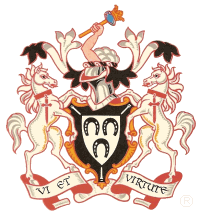Farriery Apprenticeships
The Farriery Apprenticeship falls under the national umbrella of the Institute for Apprenticeships and Technical Education, which is an employer led UK public body.
About the Institute
The Institute has a role overseeing External Quality Assurance (EQA) to ensure quality, consistency and credibility. It is accountable for the quality of apprenticeships and technical education. It oversees the development, approval and publication of apprenticeship standards and assessment plans as well as the occupational maps for apprenticeships.
The Institute work with employer groups called trailblazers to develop apprenticeship standards and assessment plans, as well as, making recommendations on funding bands to the Department for Education for each apprenticeship standard.
About the Apprenticeship
An apprenticeship is a job with training to industry standards. It should be in a recognised occupation, involve a substantial programme of on and off-the-job training and the apprentice’s occupational competence should be tested by an independent, end point assessment. Apprenticeships are employer-led: employers set the standards, create the demand for apprentices to meet their skills needs, fund the apprenticeship and are responsible for employing and training the apprentice. But the needs of the apprentice are equally important: to achieve competence in a skilled occupation, which is transferable and secures long term earnings power, greater security and the capability to progress in the workplace.
The nature of apprenticeships have been reviewed and overhauled over the past decade. To understand the recommendations and changes please see:
- The Wolf Report March 2011. A report on Vocational Training in the UK.
- The Richard Review. A paper on the future of apprenticeships.
About the Occupation and Standard
- The Farriery Apprenticeship consists of a written standard approved by the Institute, which fully defines the occupation in terms of the responsibilities and tasks involved and the skills, knowledge and behaviours required to achieve competence.
- Entry to the Farriery Apprenticeship can be transferred to other relevant employers and is sufficiently skilled to require employment and training of at least a year’s duration with 20% of the time in off the job training.
About the Job element
- Employment in a job with legal and contractually acceptable terms and conditions.
- The job role, together with the off the job training, provides opportunities to cover the full occupational profile and learning all of the skills, knowledge and behaviours required.
About the Training Programme element
- This is a challenging and stretching training and learning programme developed and delivered with the active involvement of the employer(s), which uses a range of effective on and off the job training methods as well as experience of work.
- This takes place in a motivating and supportive workplace with coaching and mentoring support for the apprentice.
- This will be an extended period of on and off the job training (at least twelve months duration with a minimum of 20% of the time in off the job training) which develops not only the knowledge and skills required but also the additional transferable skills which allow an apprentice to deal with new employers, situations, problems and equipment
About the End-point Assessment and Certification
- Achievement is required prior to entry to the end-point assessment, of the appropriate level of English and maths, any digital skills stipulated and other specified components of the Apprenticeship as signed off by the employer
- National standards are built into a demanding independent assessment at the end of the apprenticeship, carried out by a registered apprenticeship assessment organisation, which meets the Institute’s requirements for quality.
